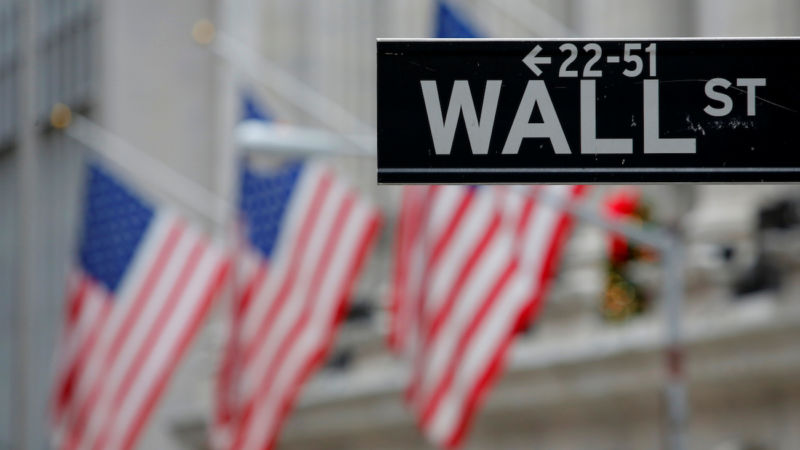One of the more surprising and instructive parts of Goldman Sachs’s settlement with U.S. authorities over the 1MDB scandal last week was the Goldman board’s decision to not only claw back compensation from past senior leaders but also to penalize the compensation of current executives, including CEO David Solomon.
In a concept that has been raised before, making Wall Street’s senior managers financially liable for corporate fines may ensure that they take greater care with deals and transactions that pose risks to the organization, experts said.
The continuing practice of firms entering into deferred prosecution agreements (DPAs) with regulators and law enforcement — where shareholders pay hefty fines while those at the top suffer little, if any, consequences — is considered in dire need of change. One way to instill greater accountability would be to revise compensation practices so there is more so-called skin in the game for top executives.
“The most distinctive aspect of this resolution is the economically significant clawbacks of compensation for both current and past senior leaders at Goldman,” said Eugene Soltes, professor at Harvard’s Business School. “Goldman’s clawbacks of millions of dollars of compensation from leaders who — while not directly responsible for the misconduct — shows an exceptional amount of personal responsibility for setting the culture at the firm at the most senior levels.”
Goldman settles with regulators
Last week, Goldman said it was clawing back $174 million in executive compensation and had agreed to pay $2.9 billion for its role in Malaysia’s 1MDB corruption scandal, lifting a cloud that has hung over the bank for years. The settlement with the U.S. Department of Justice and other U.S. and overseas regulators resolves a probe into the role Goldman bankers played in helping to steal cash, which Goldman helped raise, from the Malaysian state fund.
“While many good people worked on these transactions and tried to do the right thing, we recognize that we did not adequately address red flags and scrutinize the representations of certain members of the deal team,” Solomon wrote in a memo to staff, adding that the bank would be clawing back compensation from the three bankers involved and its former executive team. He and other senior executives would also have their compensation for 2020 reduced.
In a separate statement, the Goldman board said: “[W]e think it is appropriate that the current executive leadership team, the Chief Executive Officer, the Chief Operating Officer, and the Chief Financial Officer, as well as the current CEO of Goldman Sachs International, have their overall compensation reduced by $31 million for 2020.”
The decision to penalize current executives who were not responsible for disregarding compliance warnings as early as 2010 involving Jho Low, the financier allegedly at the center of a multibillion-dollar plunder of a Malaysian state investment fund, is a rare step and may mark a shift on how financial penalties are handled in the future, experts said.
“Imposing some accountability back on managers both past and present is a welcome breath of fresh air,” said Shivaram Rajgopal, professor at Columbia University’s Business School. “The amounts involved are still small, but I hope this symbolic beginning morphs into full accountability and clawbacks at some point in the future.”
“Covenant banking”: A way to hold executives accountable
The notion of putting top managers at least partially on the hook for future penalties and fines is not new. In the aftermath of the financial crisis, legal scholars and former bankers argued that what is missing among large firms is any sense of personal liability, a feature of Wall Street’s former partnership model that instilled greater oversight of a firm’s dealings.
In 2015, Claire Hill and Richard Painter of the University of Minnesota Law School made a provocative proposal for covenant banking, a way in which executive compensation would be re-worked to include personal financial liability for some part of future corporate fines.
Covenant banking operates directly on bankers’ monetary rewards. “Highly paid bankers would bear some personal liability if their banks become insolvent, are fined by regulators, or are found liable in civil cases involving fraud,” Hill and Painter wrote in their book Better Bankers, Better Banks.
“Fines and fraud-based civil judgments against the bank could result in compensation cuts and compensation clawbacks so dramatic that bankers who are used to seven- and eight-figure paydays would definitely feel the impact,” they argued.
The purpose of covenant banking is straightforward: create incentives for top bankers to make sure their firms don’t get into trouble. “Each such banker would be motivated to avoid problematic behavior themselves, watch for such behavior among their peers and subordinates (and those senior to them), and generally help to instill a culture that discourages bad behavior,” the authors stated.
Hill and Painter are not alone. A former Goldman executive, Steven Mandis, argued in his 2013 book What Happened to Goldman Sachs? that one way to re-instill the partnership ethos that once prevailed on Wall Street would be to create compensation schemes that include a degree of “financial interdependence,” with a greater emphasis on “fixed percentages of profits versus discretionary compensation.”
“Financial interdependence and personal liability — forcing those in the partnership to disproportionately share in fines, settlements, compliance or risk management failures, or certain losses with shareholders — might make risk management and ethical standards a higher priority and reemphasize a social network of trust,” Mandis wrote.
By creating incentives to hold one another accountable, the top management tier would be compelled to pay closer attention to the businesses they are in and engage in better risk management and related behavior.








